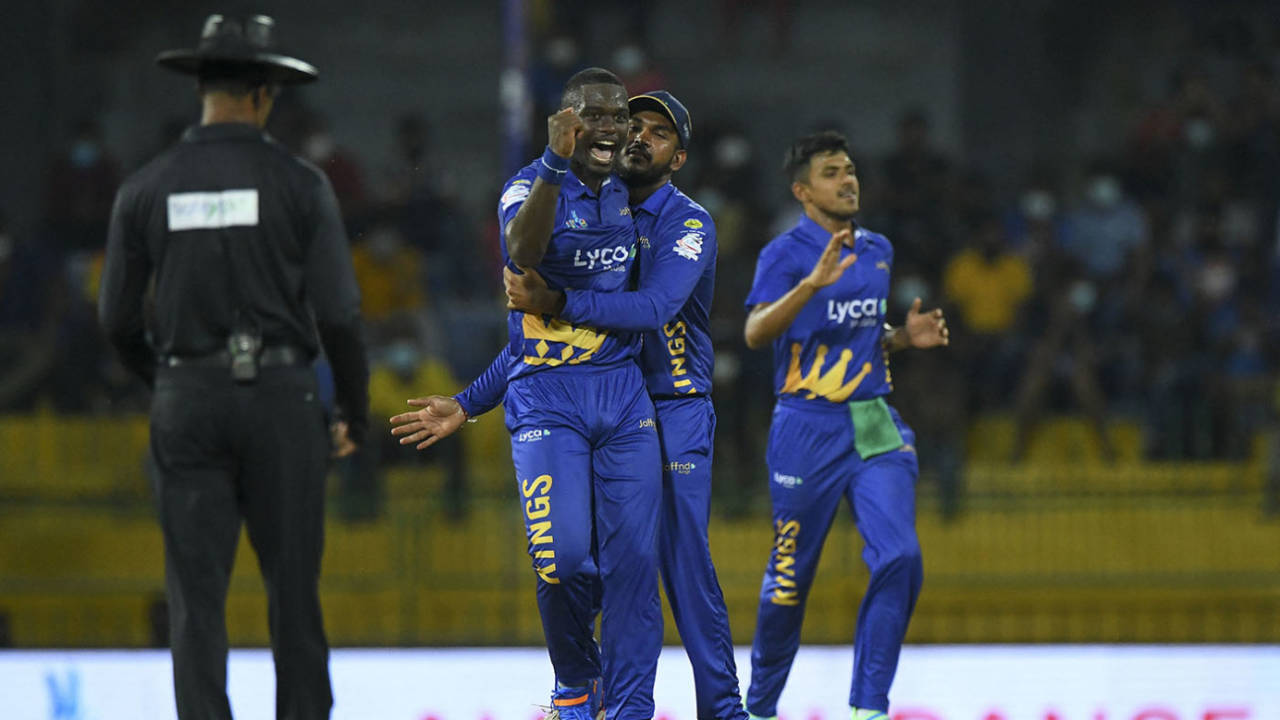Jayden Seales is in line to make his ODI debut for West Indies against Ireland on Saturday and knows that his ability to adapt to situations and learn on the job will be key, with limited experience of professional 50-over cricket to fall back on.
Seales, who turned 20 in September, made his Test debut as a teenager last year and has impressed in a West Indies shirt, taking 16 wickets at 21.31 in his four caps to date.
He has played only three List A games in his fledgling career, but was a key part of Jaffna Kings' side as they won the Lanka Premier League last month and will try to take things in his stride if selected this week, with the first of three ODIs - all at Sabina Park - taking place on Saturday.
Seales was playing in an overseas franchise league for the first time and took 15 wickets in only seven appearances. He was part of the same squad as
Suranga Lakmal and
Wahab Riaz, and credited them with helping him to develop his death bowling.
"In the team I was with, they had a lot of guys around my age group [so] we tended to go to the gym and practise a lot together," Seales said in a virtual press conference on Thursday. "But in terms of the fast bowling, I hung around a lot with Suranga Lakmal and Wahab Riaz.
"They would kind of mentor me in terms of my death bowling. I think that was the biggest struggle for me in the tournament, bowling my yorkers and things like that. Being around those guys gave me a bit more confidence in my death bowling and helped me throughout the tournament.
"It wasn't that hard [adapting to white-ball cricket]. For me in the LPL, it was just to start off bowling that hard, Test-match length and when I was given the ball in the middle and death overs, bowl my variations and take pace off the ball, whether it be slower balls, yorkers, things like that."
Seales - who has also been named as a reserve for the T20I series against Ireland and England later this month - suggested that there was a certain amount of pressure on him to perform if selected, due to his quick rise to prominence.
"I think I've been under pressure for the majority of the time in my career thus far, seeing as I'm a youngster and I've been performing," he said. "Now the media and everyone will look at me [and say] he has to perform, or if he doesn't perform, the talk might come up 'he's too young'.
"Yes, there's pressure, but I don't take it on per se. I just go out and enjoy my cricket and play to the best of my ability. If, on the day, I happen to perform well for the team, I'm very pleased.
"I was born into a family of cricketers from the age of three years old - I started playing windball cricket with my family outside. I was the youngest and the smallest and they never took it easy on me. Growing up into that, I think I got competitive because of that, and it made me grow into the cricketer I am today - it made me love the game even more.
"I thought I would have started [playing international cricket] at the age of 21 or 22. That was the age I gave my parents, I told them at 21, I'd be at the top. Thankfully, it came earlier. I'm very grateful for the opportunity and I'm just enjoying it."

